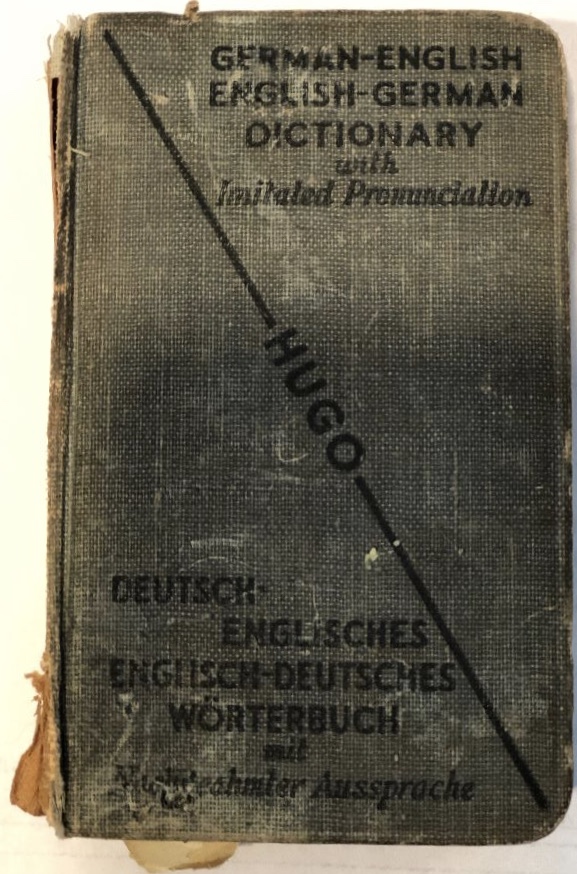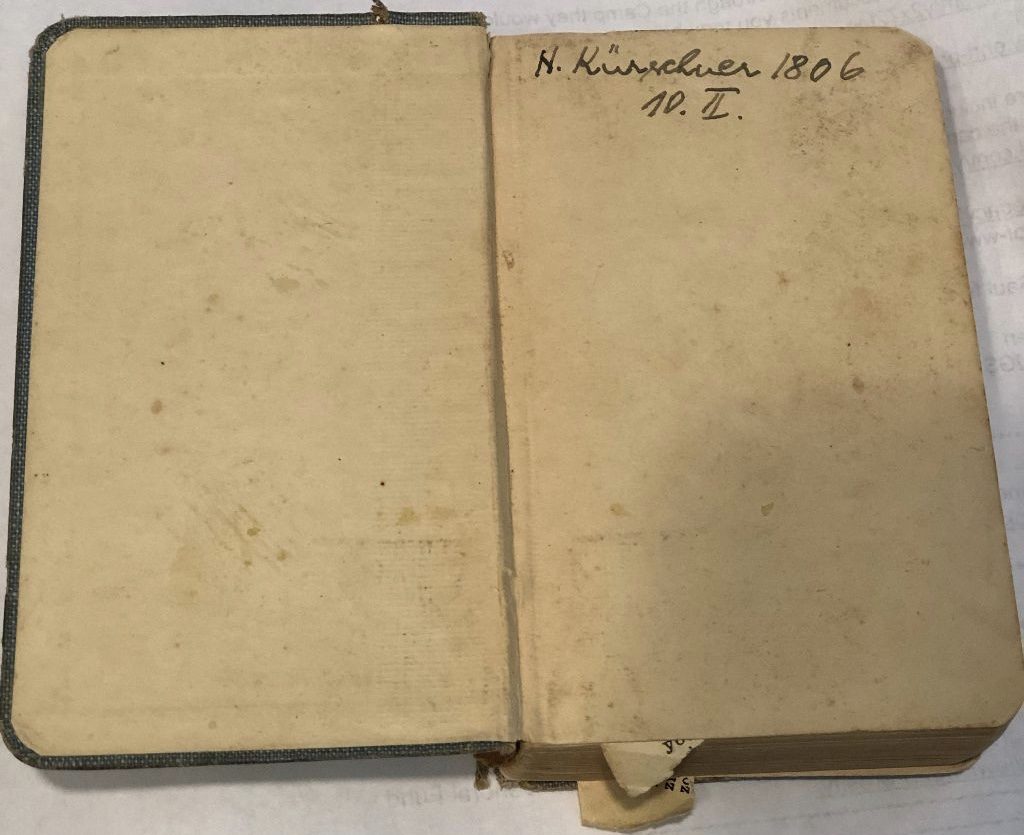Born: Monasterzyska, Poland, 25 April 1900
Profession in country of origin: Manufacturer of chemicals
Arrived in Britain as a refugee from Vienna on 5 June 1939
Documents
Male enemy alien - Exemption from internment - Refugee Surname: Kürschner Forename: Nuchim Alias: - Date and place of birth: 25/04/1900 in Monasterzyska Nationality: Stateless Police Regn. Cert. No.: 712 574 Home Office ref: C 2379 Address: Kitchener camp, Richborough, Sandwich, Kent Normal occupation: Manufacturer of chemicals Present occupation: - Name and address of employer: - Decision of tribunal: Exempted "C" & 9a Date 12.10.1939 Whether exempted from Article 6(A): Yes Whether desires to be repatriated: No [Later hand-written addition] Embarked 22.05.1940
Source: National Archives, Home Office: Aliens Department: Internees Index, 1939-1947.
Editor’s note: We are not allowed to reproduce National Archives (UK) images, but we are permitted to reproduce the material from them, as shown above.
B. Non-transmigrants Name of ship: Samaria Steamship Line: Cunard White Star Limited Names and descriptions of ALIEN passengers embarked at the port of Liverpool Date of Departure: 22nd May 1940 Where bound: New York Contract ticket number: 44684 Port at which passengers have contracted to land: New York Names of passengers: Kuerschner, Nuchim Class: 3rd Ages of passengers - Adults of 12 years and upwards 40 Accompanied by husband or wife - Males / Females - Ages of passengers - Adults of 12 years and upwards - Not accompanied by husband or wife - Males 40 / Females - Children between 1 and 12: - Infants: - Last address in the United Kingdom: Kitchener Camp, Richborough Profession, Occupation, or Calling of passengers: Chemical manufacturer Country of last permanent residence: Foreign Countries Country of Intended Future Residence: USA Country of which Citizen or Subject: Stateless
Source: National Archives: Passenger Lists leaving UK 1890-1960.
Editor’s note: We are not allowed to reproduce National Archives (UK) images, but we are permitted to reproduce the material from them, as shown above.
Memories
My very dear Clare,
The Kitchener Camp project is most commendable, and I thank you so much for doing this. However, there is another side to the Kitchener Camp saga: the family members who were also involved.
Case no. 1: My late mother, Elsa Kurschner. She was forced to leave her husband, Nuchim Kurschner, behind in Vienna in May of 1939 because both Elsa and her almost four-year-old child, me, were on the more generous Austrian quota for the USA, and our visa numbers had been reached.
Nuchim, despite living in Vienna since he was a young man, because of his Polish birth, was under the skimpy Polish quota. Therefore, my mother and I traveled by train to Cherbourg, where we embarked on the Aquitania and arrived in NY in May 1939. My mother was 30 years old and had to fend for herself. She could have lived with my father’s sister on the Lower East Side, but, due to her proud and independent nature, went out on her own. She attempted to put me in a day nursery while she found a room for rent for the two of us with a widow and her daughter in the Bronx. This did not work out, so she placed me in the Shield of David Orphan Home for Girls in the Bronx while she took a job as a live-in nanny for a wealthy doctor’s family, taking care of their four-year old son. She saved her money, and when my father did arrive on June 1, 1940, in New York, she had money for travel, job searching, an apartment, and all the basics of life. He, of course, had no money. During that year from 1939 to 1940, my mother, father and I lived in three different places.
Case no. 2: My father’s partner in Vienna, Saloman Walter, was with him in Kitchener Camp. His wife, Estera, and three-year-old son Wolfgang (Wolfe) remained in Vienna. Mrs Walter told me later, “I lived under Hitler for a whole year.” Mr Walter prevailed on the Jewish community in London to bring Estera and Wolfe to England. When they arrived, Wolfe was also placed in an orphanage, and Estera told me, “They put me in a room and had me making baskets.” Although they were all in England, the Walter family also lived in three different places. At some point, they were reunited, and they stayed in London throughout the entire war, even with the bombings. My parents brought them to the US in 1949. During her one year in Vienna “under Hitler,” Estera Walter could not have had an easy time of it. And I do not know how she provided for herself and her son.
Conclusion: While the men in Kitchener Camp received food, housing, blankets, medical care—all the necessities of life, the women, with small children, were on their own, in either foreign or dangerous territory, with only minimal help from others. I believe that the story of these wives and mothers should be included in the Kitchener Camp presentation. I am sure that when my mother wrote to my father, Nuchim, that she was forced to place me in an institution, he must have felt great pain and helplessness. The same with Mr Walter, until he was able to bring Estera and Wolfe to England.
Case no. 3: Leib Lazar, my father’s friend who was also in Kitchener Camp. He is (I believe) the man to the right of my father in the kitchen photo. My father told me that he was also in Kitchener. Somehow his wife and two small sons came to England. They were due to come to the US in 1941 (I think 1941 or so) and they were en route, via ship, when my father received word that their ship had been sunk and all were lost. In later years, my father placed a memorial Yahrzeit plaque with their names in his synagogue in Philadelphia so that they would not be totally forgotten.
The plaque reads as follows:
Aryeh, son of Zvi Lazar And _______________ (wife) And son, Zvi, son of Aryeh And son, Ernst, son of Aryeh Tishri _____
My late father, Nuchim (sometimes Norbert) Kurschner, Salomon Walter, and Leib Lazar were roommates in Vienna in the 1920s and early 1930s, until they got married. My parents married on June 26, 1932, and Salomon Walter and Estera Walter must have married about the same time. They were all from small towns in Galicia, and Vienna was the big city. My father and Mr Walter had a business. My father cooked up various products, shoe polishes, furniture polishes, and Mr Walter was the salesman. Their business was called Valkierie (Wal-Kur) to show how “Austrian” they were. I believe that my father went to a technical school rather than a university. However, he was a well-read man, and he knew the classics. In Vienna they went to the theaters, the opera, all for a tiny amount of money. Mrs Walter told me that they “had a wonderful life in Vienna.”
I do not know who the end men were – my father never identified them to me. I believe the man to his right is Leib Lazar (see if it correlates with the kitchen photo). By publishing these photos, perhaps the families of the other men will identify them. I have been to Vienna three times, and my apartment house is still there, as is the place of my father’s basement where he cooked up his products.
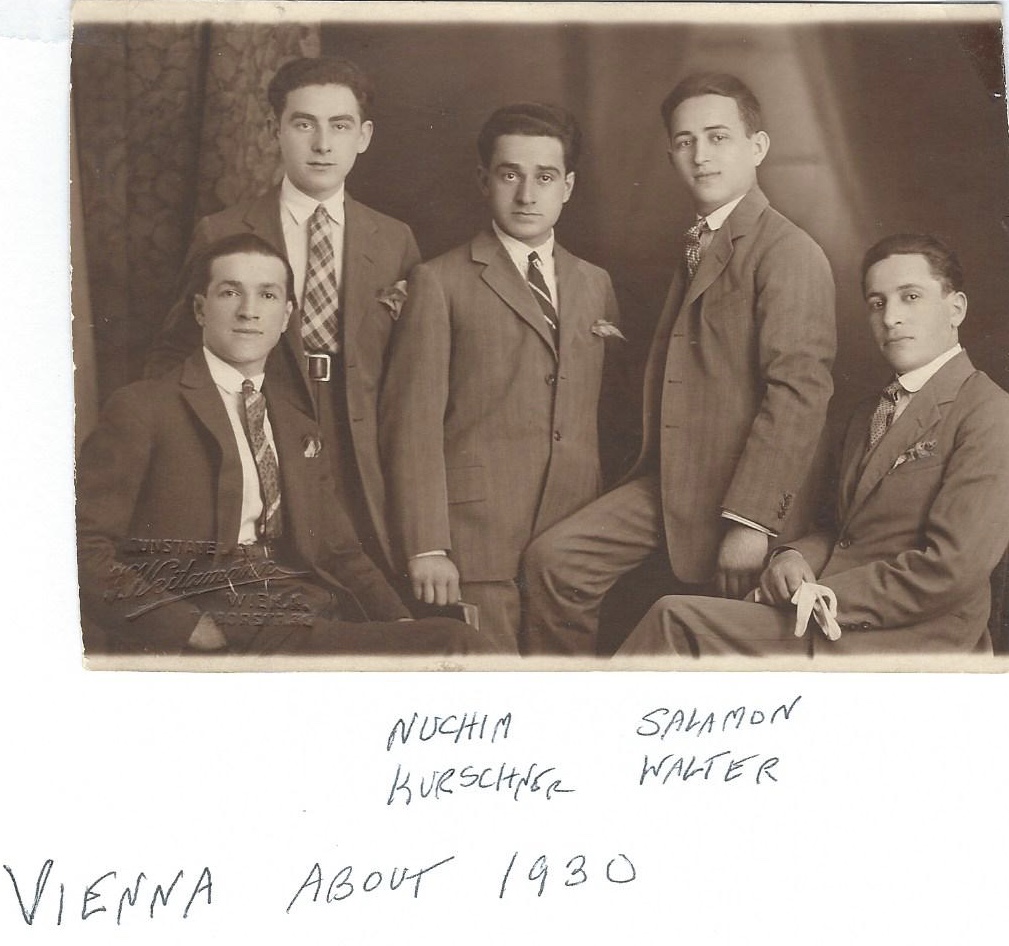
I hope this photo comes through clearly. It helps to round out the lives of the men who found refuge in Kitchener Camp. Look at the confidence in their faces!
Submitted by Ruth Kurschner for her father Nuchim Kürschner
Objects
Submitted by Ruth Kurschner for her father Nuchim Kurschner
Photographs
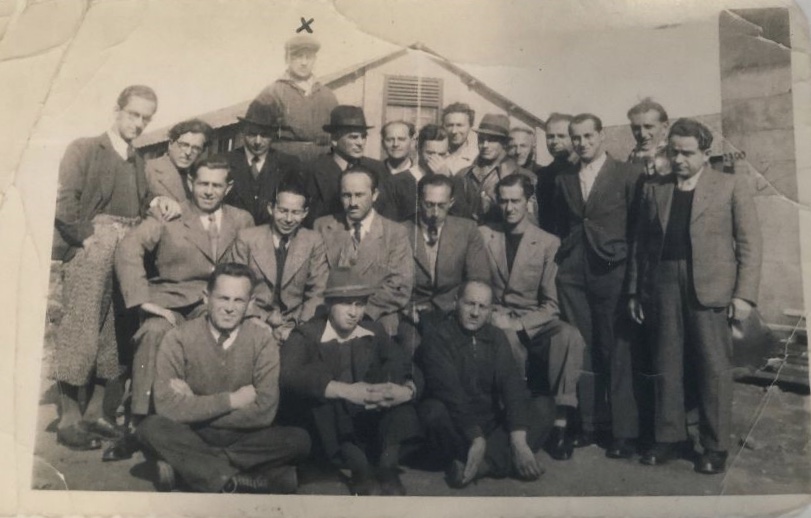
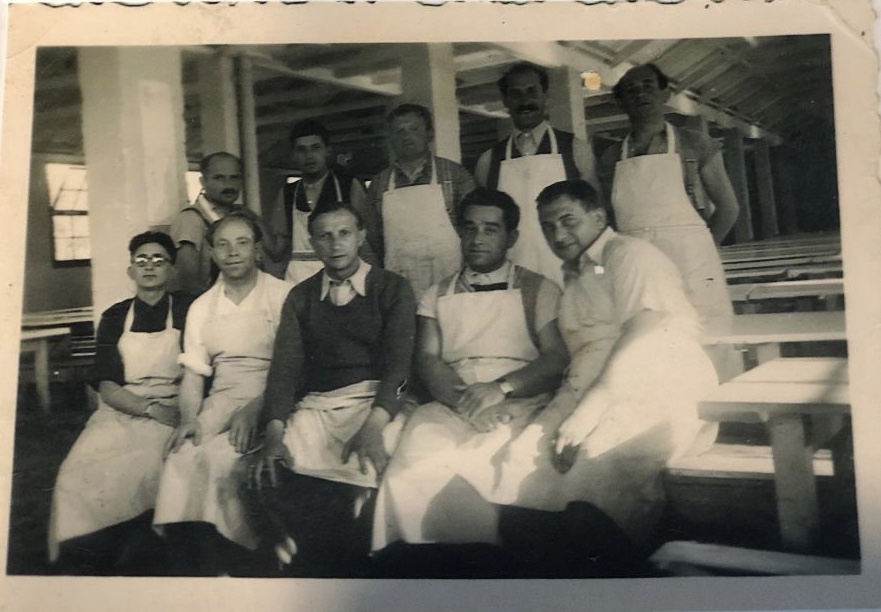
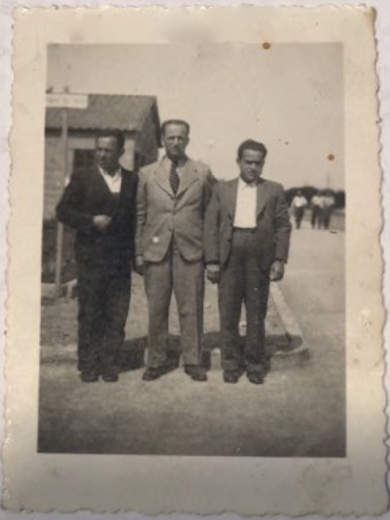
Submitted by Ruth Kurschner for her father Nuchim Kürschner

